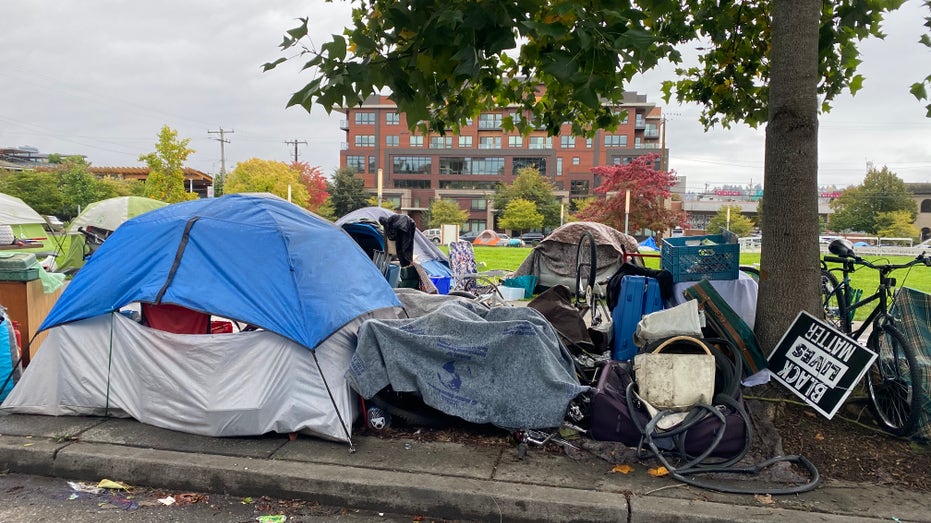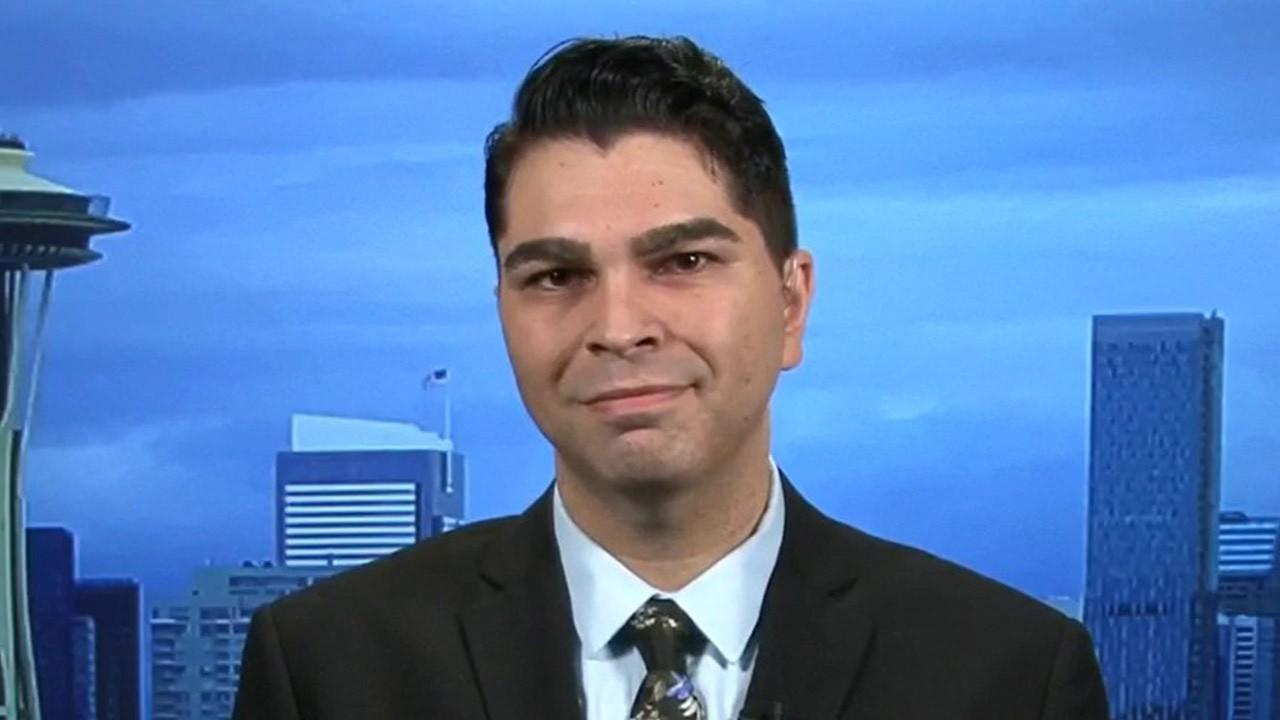Seattle homelessness explodes, with no end in sight
By any objective standard, public homelessness has never been this bad across Seattle
Homelessness is exploding in Seattle. Tents engulf city parks, kids find needles on playgrounds and many homeless people get violent. The only effective tool the city had to tackle the problem was just gutted by an ideologically-driven City Council.
The Navigation Team (commonly known as the “Nav Team”) was a specialized unit of Seattle police and social workers connecting the homeless with resources, like shelter or health care, while removing encampments.
The latter point earned the ire of the irredeemably progressive City Council, which considers encampment removals to be “inhumane” or against public health interests. Under the defund police movement, the Council gutted the entire team in August.
The tragic irony is that the Nav Team had never been more successful. From April-June (the last quarter the Nav Team compiled data), they oversaw a 239% quarter-over-quarter increase in shelter enrollment (149 in all). In fact, over 40% of those contacted said yes to shelter, up from 22% the prior quarter. But this work has ended and Seattle will suffer.
By any objective standard, public homelessness has never been this bad across Seattle. When the pandemic forced the Nav Team to slow sweeps under claims it would bring coronavirus into shelters, encampments grew and spread at an alarming rate. Between April and September 2019, the Nav Team removed 451 encampments. During the same period in 2020? Just seven. It’s painfully noticeable.
SEATTLE'S ONCE-BOOMING ECONOMY WILL SOON BE DEMOLISHED BY CITY'S TAX-ADDICTED PROGRESSIVES
Concurrently, the homeless population grew by at least 5% since 2019, according to Seattle/King County data. And the homeless, with at least 26% living with addiction or mental health problems (undoubtedly a low estimate, based on self-reporting), pose clear risks to the public.
Outside Denny Park, Seattle’s oldest park, a suspected homeless man nearly burned an officer alive. This happened after police responded to reports that a mentally ill man was waving a large burning stick nearby. After a brief encounter, the man tossed the burning wood into the officer’s patrol car. He narrowly escaped before the car was engulfed in flames.
Denny Park was enjoyed by residents and their children. Now it’s unusable, littered with dozens of tents. Just two weeks ago, nearby residents found a pile of needles next to the children’s playground.
“I was just so heartbroken because the needles were poking into children’s shoes and toys,” a tearful neighbor told a local TV station.
These experiences are not exceptions; they’re the rule.
In North Seattle, Jackson Park is overrun by a filthy encampment with a noisy makeshift “metal shop” constructed of wood, tarps, and a locked door. It operates at all hours. A homeless man named “Champ” contributes to the nuisance, running a smoky, loud generator to power a microwave and TV. When a local reporter asked him about noise complaints from neighbors, Champ flippantly said, "Tell 'em to call the cops.”
It’s especially bad in the Ballard neighborhood where the Nav Team inexplicably took heat for sweeping an encampment suffering a hepatitis outbreak. Since the sweeps stopped, tents are everywhere. Ballard Commons Park is now an unsanctioned encampment with well over a dozen tents and an overpowering stench of human waste.

A Seattle homeless encampment (Photo courtesy Jason Rantz)
Seattleites complain that the city does nothing about the encampments. This is by design.
The plan from the city, if you can call it a plan, is to use the growing encampments to petition for more tax dollars to fund “affordable housing” projects that seem to seldom materialize.
A new payroll tax will fund some projects, but as businesses abandon Seattle, this approach appears untenable. Seattle leaders want the federal government to sell them federal land cheaply to create a large, drug-friendly homeless housing complex. There are also plans to continue using hotel rooms to house the homeless.
LOS ANGELES CONVENTION CENTER MAY BE TRANSFORMED INTO HOMELESS SHELTER: REPORT
None of these stale ideas will work. It’s why we’re 15 years into the 10 year plan to end homelessness.
Seattle’s homelessness isn’t driven by high rents, despite what Councilmembers claim. That’s just a lazy way to blame Amazon and “greedy” landlords for Seattle’s problems. Only 8% of homeless cited inability to pay rent as the self-reported reason they’re on the streets. Yet, city leaders keep pushing subsidized housing, funded by more taxes on business.
We must treat the underlying causes of homelessness. The county’s own data says the chronically homeless can’t maintain stable housing because of an addiction or mental health issue.
GET FOX BUSINESS ON THE GO BY CLICKING HERE
A carrot-and-stick approach works best and the Nav Team needs to be restored. When the homeless break the law, let them choose between a jail cell or our offer of resources.
Many times, homeless people refuse help.
Well, then maybe they won’t be able to live in Seattle. We have both laws and a moral duty to help people in need. But if they say no, they should face jail time for illegal camping or drug use until they accept offers or leave the city entirely. I’d prefer they get the help they need.
This approach, however, doesn’t reflect progressive policies. It’s seen as “tough love” that lacks compassion -- as if living on the streets is compassionate.
So the Council and mayor’s office dismiss it, ensuring that the problems will only get worse. After all, they think any policing of the homeless is “criminalizing homelessness.”
Never mind that a large population of the homeless is literally breaking the law with no consequences. Meanwhile, taxpayers are spending a fortune to live in a city where they can’t even safely walk through a park.
Seattle is reaching a homeless breaking point.
Jason Rantz is a Seattle-based talk show host on KTTH Radio. Subscribe to his podcast here and follow him on Twitter @JasonRantz.
CLICK HERE TO READ MORE ON FOX BUSINESS






















